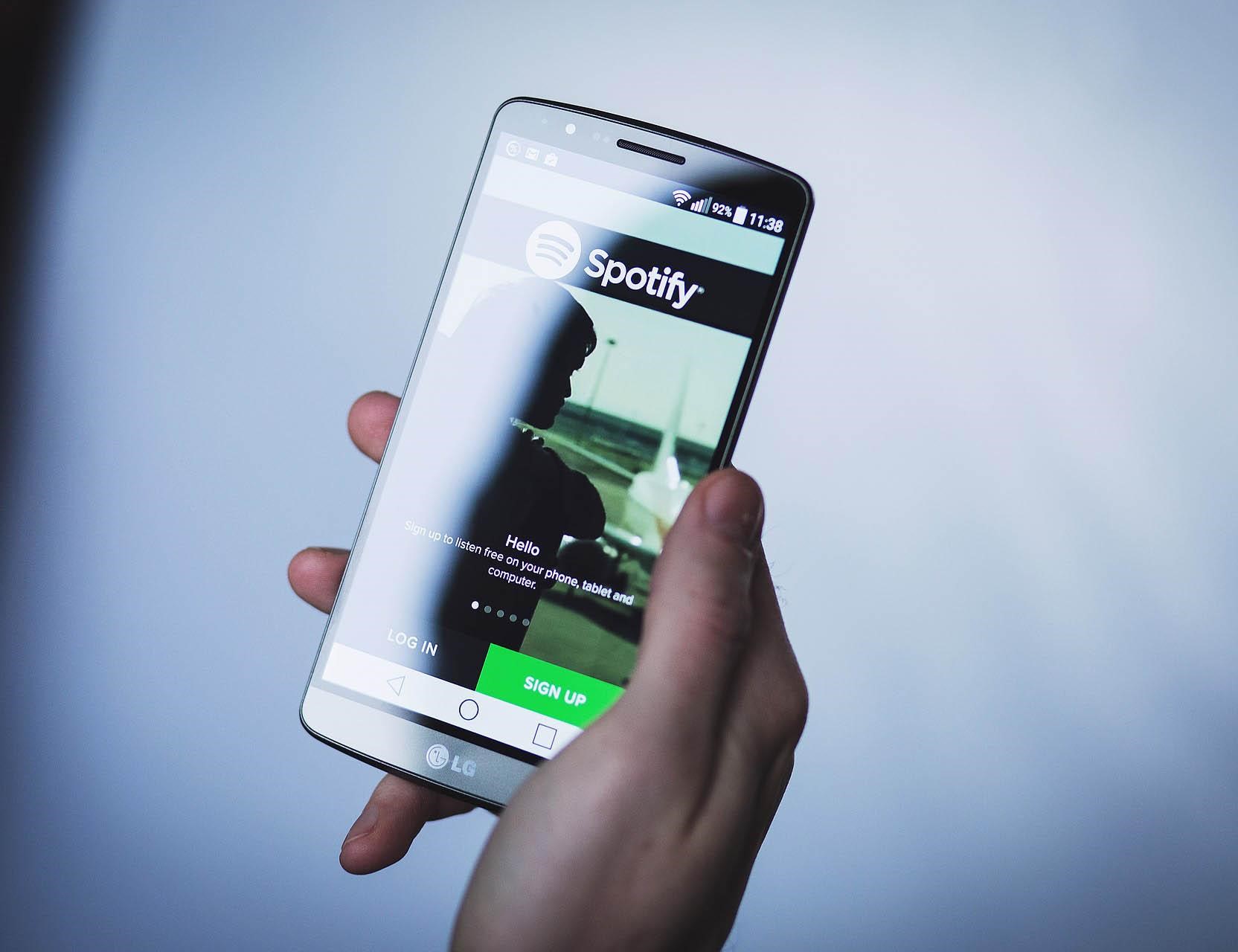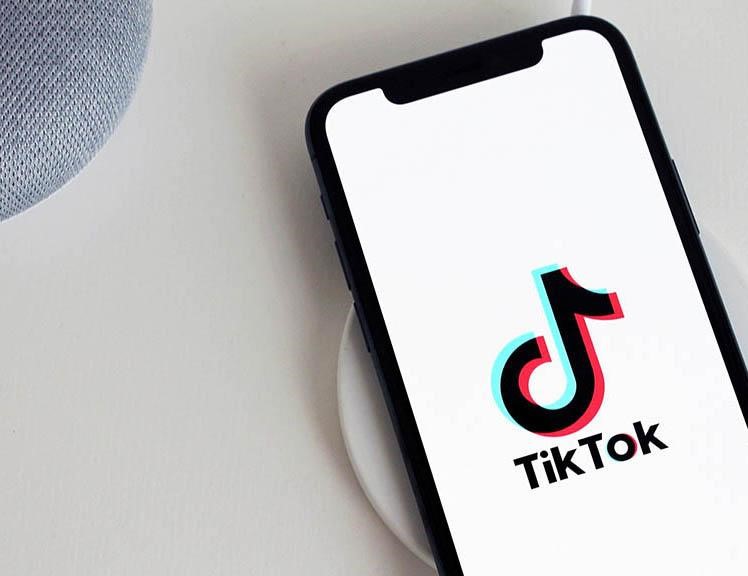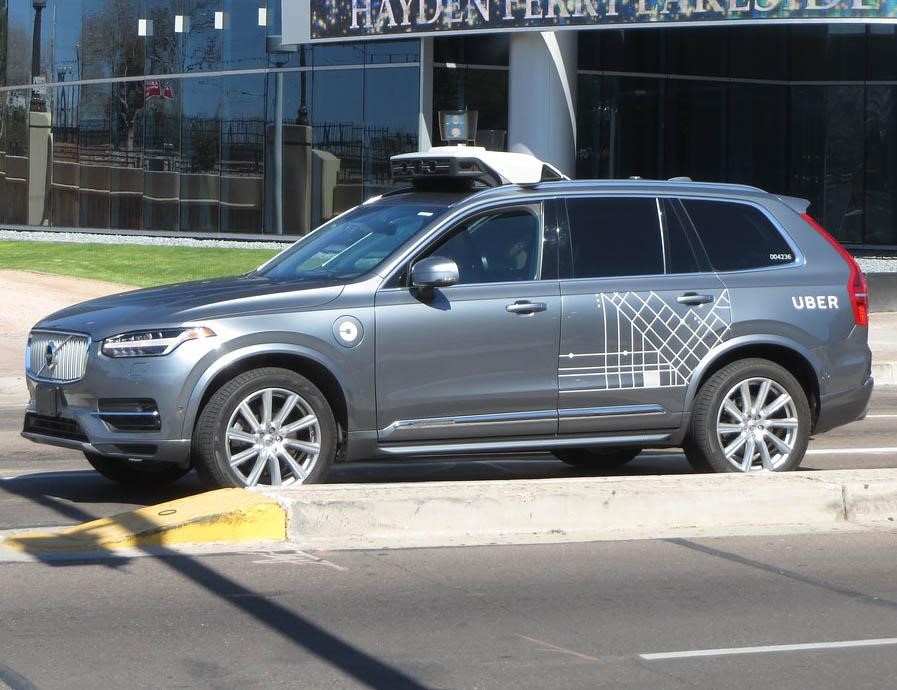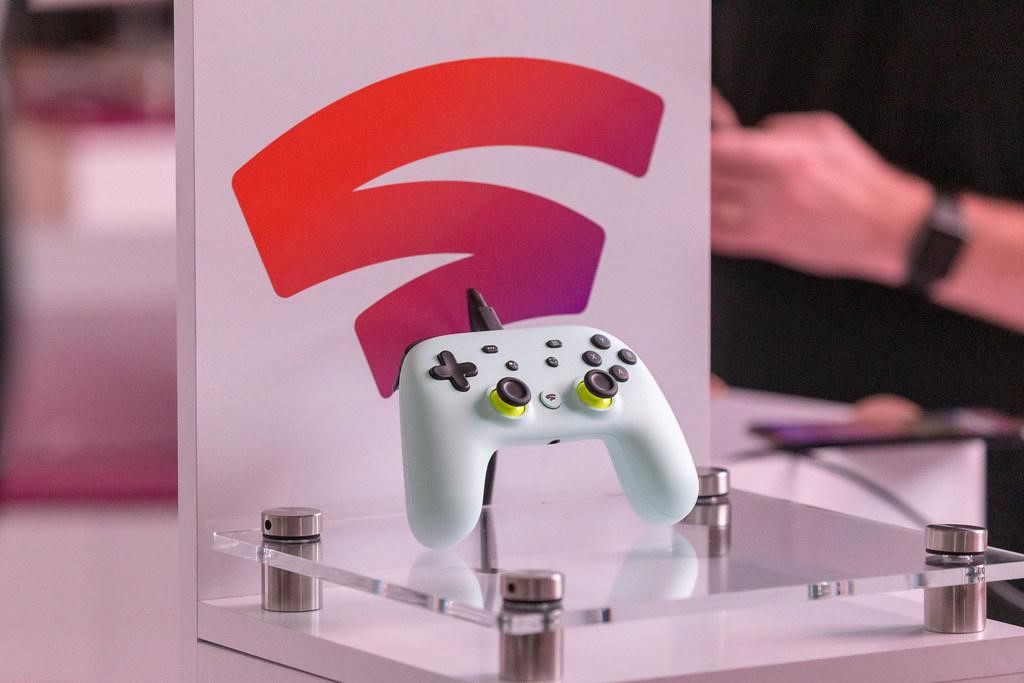Only the communications industry could bring the young Tiktok and the old Google, the digital music provider Spotify and the taxi sharing service Uber together in one article.
The communications industry has never been so diverse and massively adopted as it is today. Well-trained entrepreneurs figured out from early on where the wind of success was blowing from and decided to use this sector's growing potential to their advantage.
Some committed to the growing communications industry to save their business, some did it to fill the gap in the market, and some did it, well, simply because they could.
Spotify
The second most used podcasts platform next to Apple

In Georgia, most people know Spotify as an application for listening only to music, but the company reached its new heights thanks to a completely different direction – podcasts.
The growing interest in podcasts came from its cheap production on one side, and our faster pace of life on the other. This led to an increase in ad placement in podcasts, which enabled the development of its ad monitoring systems even further. And so, the virtuous circle was formed: the more money is invested in podcasts, the more developed it becomes, and the more money it attracts. Spotify was right on time to benefit from the potential of this growing market.
The music provider acquired three podcasts production companies (Gimlet Media, Anchor, and Parcast) to develop and fine-tune its own. The results were very exciting: because of the effective data analysis system, Spotify is fighting side-by-side with Apple for the first place in podcasts industry; who is leading the way depends on how you view the given statistics. Many think that, even though Apple still has the most listeners, Spotify's short-term success is all too promising. As per Spotify's data from the fourth quarter of 2019:
- The amount of paying users increased by 29% to make up 125 million;
- The amount of Spotify's podcast listeners increased by 200%.
The company sure did have a good sense of things.
TikTok
The most downloaded free app of 2019

Right when we thought that the social media market was already well adopted by the industry giants, a new application appeared that quickly attracted everyone's attention.
Video creation and sharing platform TikTok became the second most downloaded app in 2019. As for the activity, in the same year, it significantly outperformed both Instagram and Twitter.
It wasn't hard for TikTok to find its place on the market: Anyone can create a 15 second-long engaging, high-quality videos with different types of audio playing in the background. The application successfully benefited from the rising interest in videos, just as Spotify did with podcasts.
But the reason behind such high adoption rates lies behind the platform's genius design and the use of AI algorithms.
TikTok's simplified interface covers the whole screen with its content, which goes on endlessly, making it harder than ever to take your eyes off the screen. Adding AI algorithms to the effective use of interaction design, and you've got yourself an irresistible social platform: by analyzing the behavior of the users, the system offers them the most relevant content. Its precision and unpredictability capture the user's attention at its highest.
Influencer
For the most influential marketing campaigns

Nobody argues about the importance of influencers when it comes to increasing a company's brand awareness. Bringing the "stars" of social media into one place to provide the client company their service in an organized way turned out to be a very successful business idea. Influencer.com appeared on the market in 2017, and its popularity is growing day-by-day: The platform is already trusted by such authoritative platforms as Mcdonalds, Starbucks, and Pantene.
You probably know about influencer's business model since we have its analogs in Georgia too. But the US-based platform's main advantage is its effective influencer impact measurement system.
Based on the enormous amount of data sets, the system gives different scores to different engagement types from the user, such as like, share, save, etc. This gives us a more precise impact measurement of the campaign than a raw evaluation would.
In recent years, the founders of influencer.com, Ben Jeffries and Caspar Lee, were named in Forbes's 30 under 30 list for raising 3 million dollars in just about 24 hours on the first funding round and building a data-driven technology which allows brands to build long-lasting relationships with influencers.
Uber
One word: Robotaxis

Compared to other companies listed in this article, Uber, the taxi sharing service, is not in a good financial state. The company plans to fix this problem by releasing the so-called robotaxis; in other words, the long-awaited driverless cars.
This will not only increase the number of customers Uber will be able to serve, but it will also significantly lower the company's expenses as they will need fewer employees for their operations.
The company released its first autonomous car in 2016; last year, it acquired an AI firm Mighty AI to develop its own AI system even further.
The success of an autonomous vehicle greatly depends on one of the most important technologies in the communications sector - Artificial Intelligence:
- Computer vision enables the system to interpret and understand different objects in real-time which is a necessity for proper navigation;
- With machine learning algorithms and data collected, the system "learns" how to act adequately in different situations on the road.
Uber robotaxis are already being tested in a couple of states in the US, and they have already driven millions of miles. But, the production of driverless cars turned out to be more problematic than expected. Along with Uber, other companies, too, have missed their deadlines for the production of autonomous vehicles.
Google Stadia
The fastest cloud gaming provider

On an ending note, let's discuss the company that demonstrates the potential of a new communications system everyone is talking about today.
Cloud gaming is not new, but despite the huge financial benefits, its technical abilities are still quite limited.
To elaborate, this is a computer games service thanks to which you don't need to have a strong computer, nor do you need to buy expensive videogames every time a new version is released. Everything happens in the cloud, and all you need for playing is a laptop, a tablet, or even simply a good smartphone.
But, the main problem with cloud gaming is the internet. 4G is good enough for browsing the web, but gaming requires more speed, and that's where the unique abilities of 5G internet come in play.
Google Stadia is one of the well-known cloud gaming service providers who even positions itself as "The Netflix for gaming." Its gaming console can be directly connected to a smartphone, a tablet, or a computer.
On January 29, Stadia took a notable step forward: It formed a partnership with the telecommunications giant Verizon Wireless through which it offers 5G cloud gaming service to its users. That means that those who already have access to the 5G internet can also benefit from a much faster cloud gaming service.
Even though autonomous vehicles will also see a lot of progress thanks to the 5G internet, its amazing capabilities will likely become more visible to the masses through cloud gaming.
The prognosis on the market value of cloud gaming in the coming years is quite diverse, but one fact still stays the same – everyone predicts an outstanding growth for the cloud gaming industry.




5 irresistible companies that used the potential of communications right on time
03 August 2020Only the communications industry could bring the young Tiktok and the old Google, the digital music provider Spotify and the taxi sharing service Uber together in one article.
The communications industry has never been so diverse and massively adopted as it is today. Well-trained entrepreneurs figured out from early on where the wind of success was blowing from and decided to use this sector's growing potential to their advantage.
Some committed to the growing communications industry to save their business, some did it to fill the gap in the market, and some did it, well, simply because they could.
Spotify
The second most used podcasts platform next to Apple
In Georgia, most people know Spotify as an application for listening only to music, but the company reached its new heights thanks to a completely different direction – podcasts.
The growing interest in podcasts came from its cheap production on one side, and our faster pace of life on the other. This led to an increase in ad placement in podcasts, which enabled the development of its ad monitoring systems even further. And so, the virtuous circle was formed: the more money is invested in podcasts, the more developed it becomes, and the more money it attracts. Spotify was right on time to benefit from the potential of this growing market.
The music provider acquired three podcasts production companies (Gimlet Media, Anchor, and Parcast) to develop and fine-tune its own. The results were very exciting: because of the effective data analysis system, Spotify is fighting side-by-side with Apple for the first place in podcasts industry; who is leading the way depends on how you view the given statistics. Many think that, even though Apple still has the most listeners, Spotify's short-term success is all too promising. As per Spotify's data from the fourth quarter of 2019:
The company sure did have a good sense of things.
TikTok
The most downloaded free app of 2019
Right when we thought that the social media market was already well adopted by the industry giants, a new application appeared that quickly attracted everyone's attention.
Video creation and sharing platform TikTok became the second most downloaded app in 2019. As for the activity, in the same year, it significantly outperformed both Instagram and Twitter.
It wasn't hard for TikTok to find its place on the market: Anyone can create a 15 second-long engaging, high-quality videos with different types of audio playing in the background. The application successfully benefited from the rising interest in videos, just as Spotify did with podcasts.
But the reason behind such high adoption rates lies behind the platform's genius design and the use of AI algorithms.
TikTok's simplified interface covers the whole screen with its content, which goes on endlessly, making it harder than ever to take your eyes off the screen. Adding AI algorithms to the effective use of interaction design, and you've got yourself an irresistible social platform: by analyzing the behavior of the users, the system offers them the most relevant content. Its precision and unpredictability capture the user's attention at its highest.
Influencer
For the most influential marketing campaigns
Nobody argues about the importance of influencers when it comes to increasing a company's brand awareness. Bringing the "stars" of social media into one place to provide the client company their service in an organized way turned out to be a very successful business idea. Influencer.com appeared on the market in 2017, and its popularity is growing day-by-day: The platform is already trusted by such authoritative platforms as Mcdonalds, Starbucks, and Pantene.
You probably know about influencer's business model since we have its analogs in Georgia too. But the US-based platform's main advantage is its effective influencer impact measurement system.
Based on the enormous amount of data sets, the system gives different scores to different engagement types from the user, such as like, share, save, etc. This gives us a more precise impact measurement of the campaign than a raw evaluation would.
In recent years, the founders of influencer.com, Ben Jeffries and Caspar Lee, were named in Forbes's 30 under 30 list for raising 3 million dollars in just about 24 hours on the first funding round and building a data-driven technology which allows brands to build long-lasting relationships with influencers.
Uber
One word: Robotaxis
Compared to other companies listed in this article, Uber, the taxi sharing service, is not in a good financial state. The company plans to fix this problem by releasing the so-called robotaxis; in other words, the long-awaited driverless cars.
This will not only increase the number of customers Uber will be able to serve, but it will also significantly lower the company's expenses as they will need fewer employees for their operations.
The company released its first autonomous car in 2016; last year, it acquired an AI firm Mighty AI to develop its own AI system even further.
The success of an autonomous vehicle greatly depends on one of the most important technologies in the communications sector - Artificial Intelligence:
Uber robotaxis are already being tested in a couple of states in the US, and they have already driven millions of miles. But, the production of driverless cars turned out to be more problematic than expected. Along with Uber, other companies, too, have missed their deadlines for the production of autonomous vehicles.
Google Stadia
The fastest cloud gaming provider
On an ending note, let's discuss the company that demonstrates the potential of a new communications system everyone is talking about today.
Cloud gaming is not new, but despite the huge financial benefits, its technical abilities are still quite limited.
To elaborate, this is a computer games service thanks to which you don't need to have a strong computer, nor do you need to buy expensive videogames every time a new version is released. Everything happens in the cloud, and all you need for playing is a laptop, a tablet, or even simply a good smartphone.
But, the main problem with cloud gaming is the internet. 4G is good enough for browsing the web, but gaming requires more speed, and that's where the unique abilities of 5G internet come in play.
Google Stadia is one of the well-known cloud gaming service providers who even positions itself as "The Netflix for gaming." Its gaming console can be directly connected to a smartphone, a tablet, or a computer.
On January 29, Stadia took a notable step forward: It formed a partnership with the telecommunications giant Verizon Wireless through which it offers 5G cloud gaming service to its users. That means that those who already have access to the 5G internet can also benefit from a much faster cloud gaming service.
Even though autonomous vehicles will also see a lot of progress thanks to the 5G internet, its amazing capabilities will likely become more visible to the masses through cloud gaming.
The prognosis on the market value of cloud gaming in the coming years is quite diverse, but one fact still stays the same – everyone predicts an outstanding growth for the cloud gaming industry.